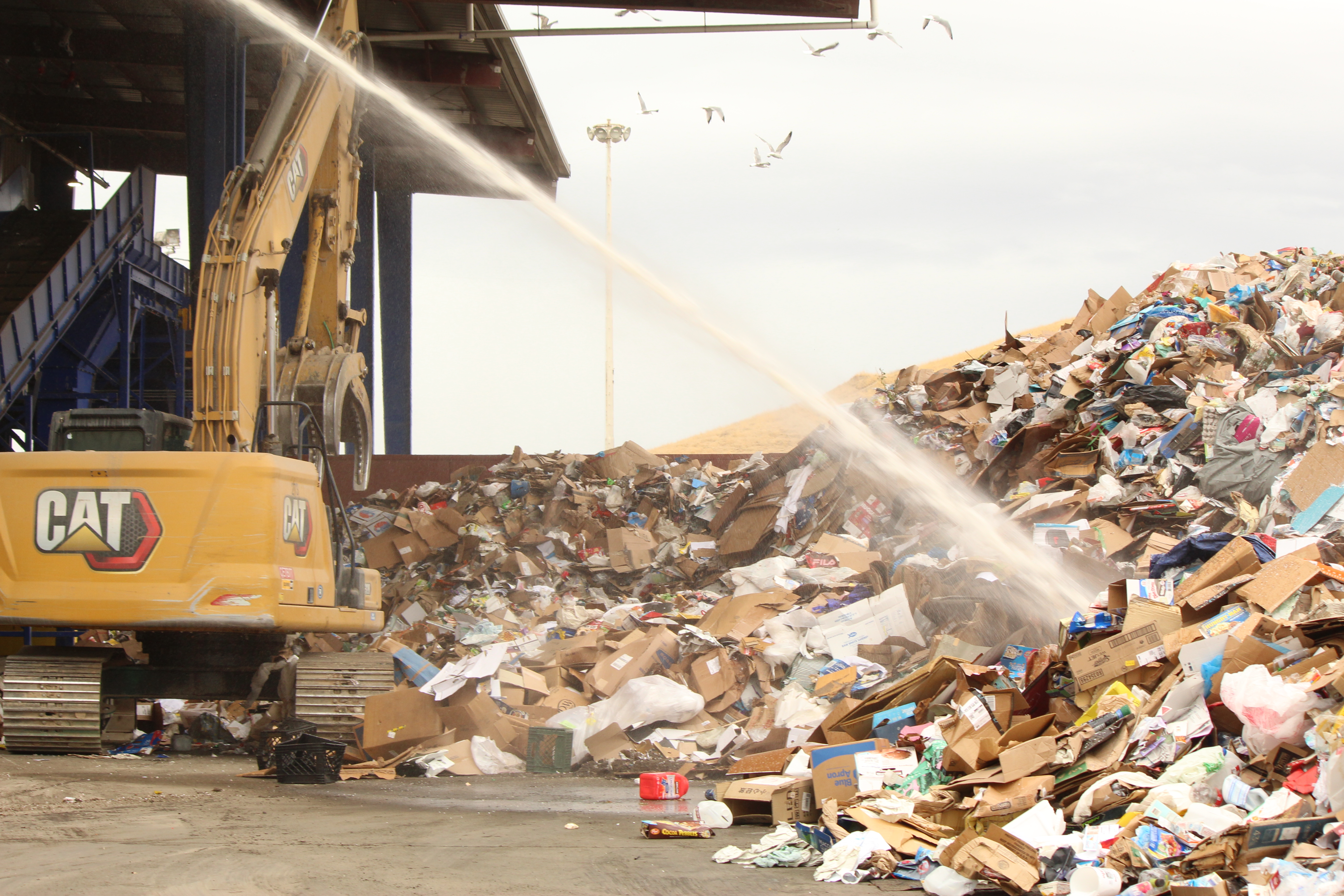Share
Beyond the mountains of trash that pile up at the Caglia Environmental facility in Fresno, 320 tons of waste are recycled daily with the help of robots and human employees working alongside each other seeking out items that cannot be recycled.
On Monday morning, Caglia Environmental hosted an informational tour of its facility at the Cedar Avenue Recycling and Transfer Station, unveiling new technology that has helped the regional facility divert hard-to-process plastics from Central Valley landfills.
Richard Caglia, the company’s president of corporate development, says the technology emerging in recent years has made many plastics easier to recycle. But he also acknowledges that there is still far more to do.
“The robotics are doing a better job for the recycling market — meeting and exceeding the California state regulations and the mandates,” said Caglia. “They’re doing a good job for our community, and doing a good job for our municipalities that we service.”
New Technology Shapes the Way Plastic Waste is Recycled
The advantage of the robots is that they easily sense waste that cannot be recycled after it is dropped off at the facility.
They are also very adept at recognizing harder-to-process plastics buried deep within the piles of trash and recyclables.
Additionally, the sites brand new thermal detection and suppression system also known as fire rovers can sense heat in the pile before there is smoke or flames.
Fire rovers are monitored 24/7 by a human employee who use high-definition cameras to spray the fire-fighting foam where it is needed quickly jumping into action by putting out fires sparked by batteries and other electronics wrongly thrown into the blue recyclable cart bins by residents.

What’s Hurting the Recycling Industry?
Despite technological advances, challenges persist in the recycling industry with many residents still clueless and unsure about what material goes where.
Disposing of recyclable materials like certain plastics, cardboard, and paper into a blue cart bin is not a new concept.
In 2005, a mandatory recycling ordinance passed requiring all multifamily and commercial customers to start recycling some of their waste.
Both the county and city of Fresno have focused on outreach and education. They regularly send out flyers detailing what must be thrown into the gray, blue, and green cart bins.
However, more batteries, electronics, and propane tanks are being thrown into the blue cart bins potentially causing fires to erupt, says Nasreen Johnson, director of community relations and external affairs for Caglia.

“Sometimes fires start deep within a pile, but the fire rovers will know where it is sparking,” said Johnson. “Lots of people throwing in batteries that should not be recycled is what’s causing these fires to spark.”
Residents can drop off old batteries at any Fresno County public library, says Johnson, or seek out places like the Fresno County Regional Household Hazardous Waste Facility to drop off hazardous waste.
Caglia Seeks Partnerships to Help Divert Waste
Mike Ledieff, division manager for CARTS, says recycling is a challenging industry to be in. To tackle those challenges, they seek out partnerships that can help them obtain improved technology.
Recently, the CARTS facility received a grant of $250,000 from the Recycling Partnership, a national non-profit organization that aims to invest and support public recycling programs and facilities like Caglia.
“Our partnership with the Recycling Partnership has been huge,” said Ledieff.
In part, becuase of the grant by the Recycling Partnership, CARTS was able to purchase a robot from AMP robotics that helps recover polypropylene.
“Polypropylene is a very interesting material in that it comes in a lot of formats,” said Brittany Lavalley, who leads the polypropylene coalition for the Recycling Partnership as director of circular ventures.
“Think about your butter tubs, your yogurt cups, sour cream tubs, beauty packaging products, because of that array of formats, the amazing technology that is provided by companies like AMP is incredibly beneficial for sorting all of these packaging formats.”
RELATED TOPICS:
Categories

How a Relaxed and Joyous Alysa Liu Won the Gold


















